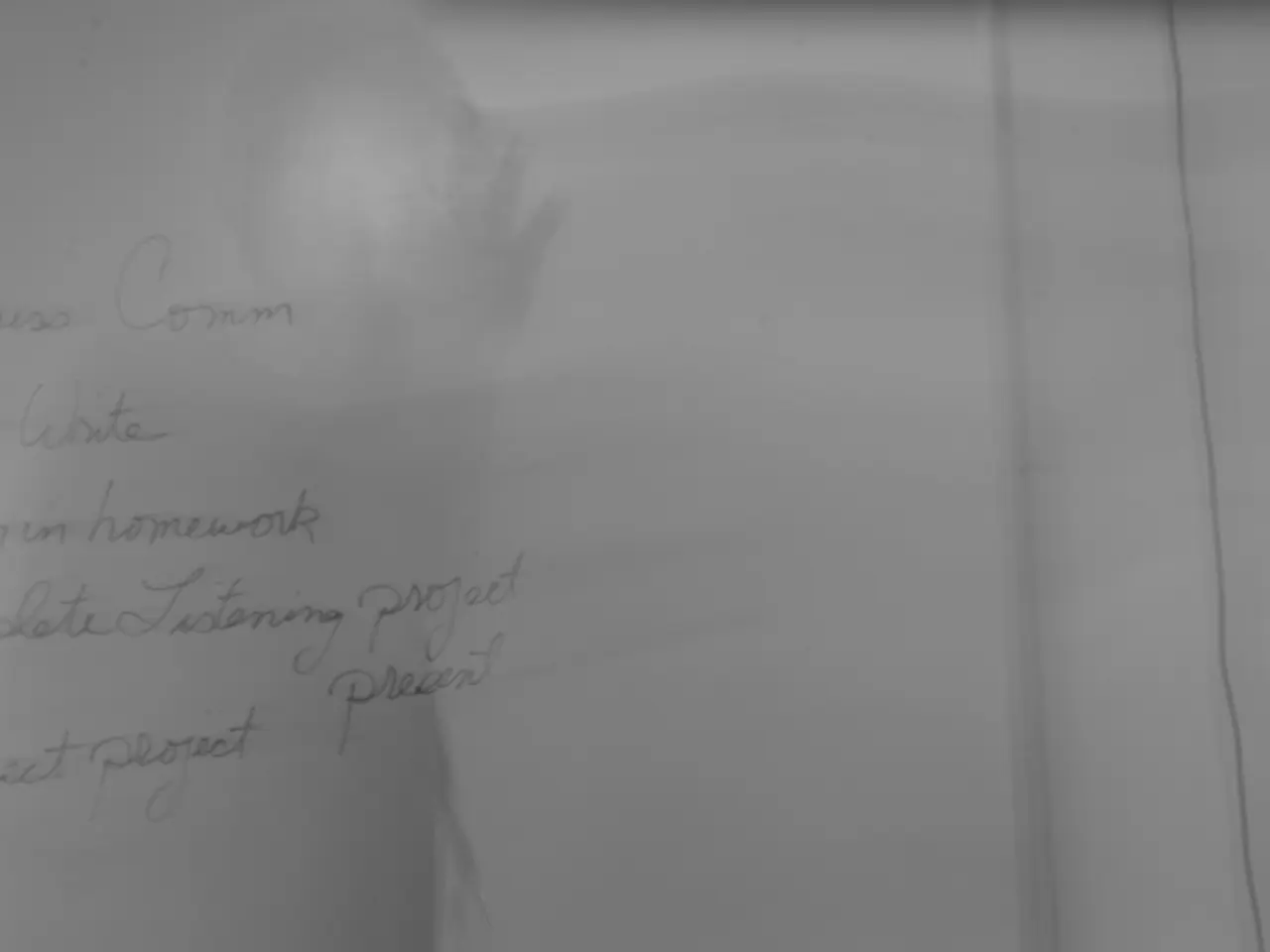Wall Street tariff concerns viewed as tantamount to anticipation for "Waiting for Godot" by a Trump administration official
In recent months, inflation has been on the rise after a fall at the start of the year. This trend has sparked discussions about the impact of tariffs on the economy.
Jerome Powell, the Federal Reserve Chair, has expressed caution about the potential effects of tariffs, suggesting that they could lead to one-time price hikes or pose a more persistent inflation threat. However, the extent of tariff-induced inflation remains unclear.
Treasury Secretary Scott Bessent and Joe Lavorgna, a key official in the Trump administration's economic team, have claimed that tariff-induced inflation is not materializing significantly in the U.S. economy. However, the evidence is mixed.
On one hand, some analyses suggest that the impact of tariffs on overall inflation has been muted so far. For instance, a Barclays report noted that the effective weighted-average tariff rate has been lower than headline rates due to shifting import patterns and exceptions under trade agreements. This has contributed to a more modest rise in tariff-related costs than commonly assumed.
Similarly, the Federal Reserve Bank of Richmond researchers observed in mid-2025 that while some firms exposed to tariffs had increased price expectations, there was no clear, widespread evidence yet of a major pass-through of tariff costs into inflation. Inflation through 2025 was relatively steady, and the effect of tariffs on overall inflation remained uncertain.
However, contrasting evidence comes from the Atlanta Fed’s August 2025 Survey of Business Uncertainty. It found that firms directly exposed to tariffs have sharply increased their year-ahead price growth expectations, suggesting a broadening inflationary impulse linked to tariffs.
Historical and recent data also show that tariffs in prior periods put upward pressure on costs, with wholesale prices rising quickly and price spikes observed in key consumer goods.
In summary, current research indicates that tariff-driven inflation pressures are not yet fully materialized across the whole economy and may be partly offset by factors like lower effective tariff rates and demand shifts. However, there is evidence from business surveys that tariff exposure is increasing firms’ inflation expectations and may lead to further price increases, signaling potential for more notable inflation in the near future. Past tariff episodes showed a stronger inflation link, reinforcing concerns about potential lagged effects on inflation.
The consumer price index (CPI) data for July was recently released by the Bureau of Labor Statistics, showing a 0.2% monthly increase and a 2.7% year-on-year rise. Core CPI, which excludes volatile energy and food costs, was up 0.3% from a month ago and 3.1% from last year.
Revenues from tariffs are "running at the high end of expectations," according to Lavorgna. However, he has challenged predictions made by Wall Street firms, stating that there is no evidence of tariffs impacting U.S. consumers or companies in the data and earnings.
Joe Lavorgna, counselor to Treasury Secretary Scott Bessent, spoke with FOX Business following the release of the economic data. He stated that the recent inflation data suggests that the inflation rate may not materialize as predicted by some. Lavorgna compared the possibility of prices jumping up a lot due to tariffs to getting a tryout for the New York Yankees, stating that it's highly unlikely.
Despite these statements, many companies have stated that tariffs have not had any appreciable effect on them. The stock market is up, indicating a positive outlook despite the inflationary concerns.
In conclusion, while there is evidence suggesting that tariff-induced inflation is not yet fully materialized, emerging firm-level data and historical precedent highlight credible risks of tariffs contributing more to inflation going forward. The overall picture remains nuanced and evolving.
- The rise in inflation has triggered debates about the effects of tariffs on the economy, with Jerome Powell expressing caution about potential tariff-induced inflation.
- Some analyses suggest that the impact of tariffs on overall inflation has been muted so far, but there are signs that tariff exposure could increase firms' inflation expectations.
- The Treasury Secretary and a key official in the Trump administration's economic team claim that tariff-induced inflation is not significant in the U.S. economy, yet the evidence is mixed.
- The Federal Reserve Bank of Richmond researchers found no clear, widespread evidence of a major pass-through of tariff costs into inflation by mid-2025, although this may change as firms' expectations increase.
- In the ATLanta Fed’s August 2025 Survey of Business Uncertainty, firms directly exposed to tariffs had sharply increased their year-ahead price growth expectations, showing a broadening inflationary impulse linked to tariffs.




